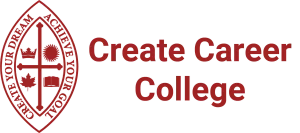- HOME
- PROGRAMS
- ADMISSIONS
- STUDENT AFFAIRS
- MEDIA
- PAYMENT
- CONTACT
- HOME
- PROGRAMS
- ADMISSIONS
- STUDENT AFFAIRS
- MEDIA
- PAYMENT
- CONTACT

Business Administration Diploma with Co-op
1 Year Lecture + 1 Year Co-op
The Business Administration Diploma with Co-op program is designed to prepare students for a managerial or administrative position in the field of retail, finance, marketing, and more.
This diploma program offers a solid foundation to power students’ pursuit of career success in Business Administration. Students are able to acquire business administration skillsets such as management, accounting, marketing, communication, and organizational behavior.
The program integrates lecture learning and 48-week of Co-op work experience where students could improve their competence and develop practical Business Administrative skillsets in real-world practice for future career success.
 Combination of Instructor-led lectures, guest speakers, case studies, presentations, online reading and exams. Online delivery will utilize Canvas (Learning Management System) to host lectures, assign homework, start discussions and monitor attendance.
Combination of Instructor-led lectures, guest speakers, case studies, presentations, online reading and exams. Online delivery will utilize Canvas (Learning Management System) to host lectures, assign homework, start discussions and monitor attendance.
- Intercultural communication skills
- Business reporting, financial planning, and business email preparation skills
- Organizational management skills
- Human resource management skills)
- Canadian business law
- Accounting management techniques
- Organizational behavior
- Marketing skills
- Trial balance preparation, closing and financial statement preparation skills
- Corporate finance
- Business plan development skills
- Managerial economics and strategy
- Investment strategy and portfolio management skills
- International business management skills
 Create Career College offers online course options for most programs. Domestic and international students are able to develop skills for career growth wherever they are. With small class sizes, our experienced and remarkable instructors ensure immediate response and feedback for the best assistance.
Create Career College offers online course options for most programs. Domestic and international students are able to develop skills for career growth wherever they are. With small class sizes, our experienced and remarkable instructors ensure immediate response and feedback for the best assistance.
- Student must be a high school graduate or equivalent or above;
- Student must be at the age of 19 years old or over on the first day of class;
- To enter our Diploma programs, applicants must meet 1 of the following English proficiency requirements;
-
- Successful completion of the Create Career College’s English as a Second Language (ESL) program, a prerequisite to vocational and academic programs in Create Career College, or
- Obtaining a minimum score of 80 on TOEFL iBT, or a minimum overall band score of 6.0 on the IELTS academic module, or
- Successful completion of Grade 12 from a Canadian High School or equivalent, or
- A score of at least 60% on the Create Career College English Placement Test.

Combination of Instructor-led lectures, guest speakers, case studies, presentations, online reading and exams. Online delivery will utilize Canvas (Learning Management System) to host lectures, assign homework, start discussions and monitor attendance.
- Intercultural communication skills
- Business reporting, financial planning, and business email preparation skills
- Organizational management skills
- Human resource management skills)
- Canadian business law
- Accounting management techniques
- Organizational behavior
- Marketing skills
- Trial balance preparation, closing and financial statement preparation skills
- Corporate finance
- Business plan development skills
- Managerial economics and strategy
- Investment strategy and portfolio management skills
- International business management skills

Create Career College offers online course options for most programs. Domestic and international students are able to develop skills for career growth wherever they are. With small class sizes, our experienced and remarkable instructors ensure immediate response and feedback for the best assistance.
| Domestic | International | |
| Net Tuition | $ 15,520 | $ 22,420 |
| Application | $ 200 | $ 1,000 |
| Textbook | $ 1,500 | $ 1,500 |
| Admin Fee | N / A | N / A |
| Other | $ 800 | $ 800 |
| Total | $18,020 | $25,720 |
- Student must be a high school graduate or equivalent or above;
- Student must be at the age of 19 years old or over on the first day of class;
- To enter our Diploma programs, applicants must meet 1 of the following English proficiency requirements;
-
- Successful completion of the Create Career College’s English as a Second Language (ESL) program, a prerequisite to vocational and academic programs in Create Career College, or
- Obtaining a minimum score of 80 on TOEFL iBT, or a minimum overall band score of 6.0 on the IELTS academic module, or
- Successful completion of Grade 12 from a Canadian High School or equivalent, or
- A score of at least 60% on the Create Career College English Placement Test.
Co-op Programs
Create Career College prepares students for real-life work experience to develop high-demand workplace skills upon academic training. We always make sure our programs are aligned with the current job market and business trends. CCC College is dedicated to guaranteeing a prosperous career for every graduate.
Business Administration Diploma Duration: In total 98 weeks (1,960 hours)
Lecture
1,000 hours (50 weeks)
Co-op
960 hours (48 weeks)
Managerial communication is designed to help students appreciate the importance of effective communication. The course focuses on written, verbal and nonverbal communication so that students are able to assess their audience, interpret body language and communicate interculturally. Students will enhance their written and communication skills through writing business reports and various types of messages.
This is one of the core courses of the business administration program. It gives students an overall view of the theoretical and practical concepts of an organization’s management: planning, organization, leadership and control.
Managing people is one of the most important functions of a business. This course gives students the practical and effective methods for recruitment, training & measuring performance. Students learn how different organizations use different types of recruitment and performance management methods as well as employee retention strategies.
This introduction to Canadian business law focuses on writing contracts, what makes a contract valid and the legal responsibilities of a business. The course will also elaborate on different methods of establishing a business and legal issues related to employment.
Organizational behaviour is a core program in which students learn how to deal with people on a personal and organizational level. The course is structured to help students understand how personalities affect organizations and how organizational cultures are shaped. They learn about different leadership styles and self-improvement techniques.
Students learn how to build long-term profitable relationships with consumers. Students will be expected to complete a full market research for a potential product or service, select a pricing strategy and choose the best communication and delivery methods.
Students acquire hands-on experience performing all aspects of an accounting cycle: journalize transactions, create a trial balance, close accounts and create financial statements. This course is a prerequisite for the finance course.
Finance for managers is designed to help students make decisions based on financial statements using financial ratios, assessing organizational risks and evaluating opportunities. Students will learn concepts such as, valuation of financial securities and maximizing shareholder value.
In this advanced course, students build long-term business plans. Students will analyze cases and research and present concepts learned in class.
Managerial economics is a course designed to shape students’ thinking by incorporating internal and external economic factors. The course focuses on concepts such as supply and demand, production costs and market structures. Students study these theories and their application. Students will also learn how to calculate start-up operational costs and profit margins.
The main objective of this course is to provide basic understanding of Canadian payroll and taxation system. Students will learn an overview of the requirements for processing payroll calculation and administrating the payroll to employees, government agencies and other parties in compliance with Canadian laws, regulations, and contractual arrangements.
International Business Management introduces students to theories regarding international trade, methods for assessing the global environment, economics and political systems. Students will compare global market entry methods and types of direct foreign investment. Students will also receive tools to compare and measure multiple aspects of different cultures.


Career Opportunities
Accounting Assistant
Marketing Assistant
Receptionist
Officer
Financial Specialist
Office Administrator
Company Secretary Assistant
Manager
FAQ
Student needs to have completed Grade 12, or be over 19 years old. You may need to pass an English assessment test, depending on your official English scores. For individual program requirements, please see the program listings.
We offer frequent start dates for most of our programs, giving students plenty of options. Please contact us to find out the next start date.
Our academic advisors are happy to assist you in finding the program that fits your interest the most. Please contact us.
Please consult our accommodations page for further information or contact us for further assistance.
We are located directly opposite of Metrotown Mall, which has SkyTrain, bus and taxi service to make your commute easy.
Please consult with us directly so that we can come up with a suitable payment plan. Paying for college can be stressful, so we want to work with you to make this as stress-free as possible.
Academic Advising
Create Career College has experienced advisors dedicated to providing career assistance to students. Students at CCC College are able to maximize their potential and greatly enhance their competitiveness in today’s job market.
If you have any questions, please contact us using the enquiry form below.








